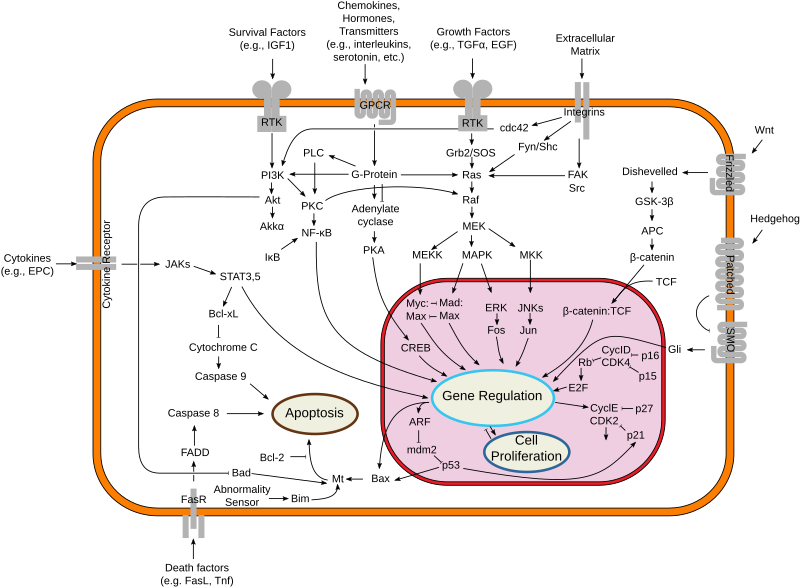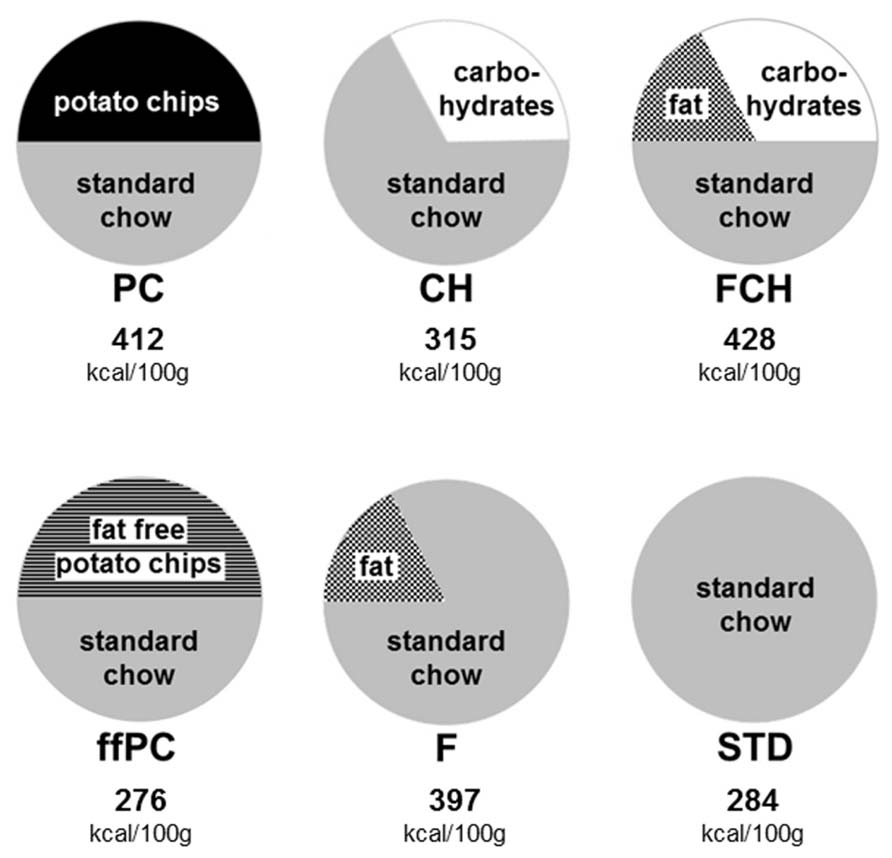mardi 29 avril 2014
lundi 28 avril 2014
dimanche 27 avril 2014
samedi 26 avril 2014
vendredi 25 avril 2014
jeudi 24 avril 2014
Sugar, diabetes, is there a relationship?
http://www.plosone.org/article/info%253Adoi%252F10.1371%252Fjournal.pone.0057873
Association
of Sugar Availability (kcal/person/day) with Log Diabetes Prevalence,
Adjusted for Selection Bias
|
|
Effect of
Sugar Availability
|
0.008 (0.0009)***
|
Effect of
Sugar Hazard Rate l †
|
-1.08 (0.66)
|
*
p<0 .05="" i="" nbsp="" p="">
Note:
Robust
standard errors in parentheses clustered by country. Models include controls
used in the basic specification in equation 1.
† l is
the hazard rate of sugar availability, also referred to as the Inverse Mills
Ratio.

Natural and very ancient GMO
http://m.pnas.org/content/early/2014/04/09/1319929111
"We present evidence for neochrome in hornworts (a bryophyte lineage) and demonstrate that ferns acquired neochrome from hornworts via horizontal gene transfer (HGT)."
"We present evidence for neochrome in hornworts (a bryophyte lineage) and demonstrate that ferns acquired neochrome from hornworts via horizontal gene transfer (HGT)."
mercredi 23 avril 2014
dimanche 20 avril 2014
Rosette de Montalet faussement appelée tradition car contenant du sucre!

Comment on peut le constater ce saucisson est fabriqué avec du dextrose et du sirop de glucose.
La tradition du saucisson sec c'est sel, poivre, fermentation.
vendredi 18 avril 2014
Vegetable oil in products: evaluate your profile!
Half of all food products contains palm oil. But amounts of palm oil vary widely. So when we evaluate our consumption by the average amount of palm moil ingested mention of standard deviation is mandatory...
 |
| http://blog.euromonitor.com/2014/04/palm-oil-to-create-winners-and-losers-in-packaged-food.html#more |
"The actual amount of palm oil contained in packaged food products varies, from 1% in bread, 2% in ready meals, 4% in chocolate confectionery and 14% in biscuits."
http://www.foodnavigator.com/Market-Trends/Sustainable-palm-oil-shift-is-cheaper-than-bad-publicity-impact/?
jeudi 17 avril 2014
Sat fats, CVD and the conventional guidelines: time to change?
http://annals.org/article.aspx?articleid=1687009
http://annals.org/article.aspx?articleid=1846638
http://www.nutraingredients.com/Health-condition-categories/Cardiovascular-health/Further-evidence-questions-fat-intake-guidelines-and-heart-disease-links/?
http://cel.webofknowledge.com/InboundService.do?SID=V1MN7RPJoXInd8Kr5Lg&product=CEL&UT=000239105900008&SrcApp=PARTNER_APP&action=search&Init=Yes&customersID=stanwire&Func=Frame&SrcAuth=stanwire&viewType=summary&IsProductCode=Yes&mode=CitingArticles
http://www.ncbi.nlm.nih.gov/pubmed/16825681
http://annals.org/article.aspx?articleid=1846638
http://www.nutraingredients.com/Health-condition-categories/Cardiovascular-health/Further-evidence-questions-fat-intake-guidelines-and-heart-disease-links/?
http://cel.webofknowledge.com/InboundService.do?SID=V1MN7RPJoXInd8Kr5Lg&product=CEL&UT=000239105900008&SrcApp=PARTNER_APP&action=search&Init=Yes&customersID=stanwire&Func=Frame&SrcAuth=stanwire&viewType=summary&IsProductCode=Yes&mode=CitingArticles
http://www.ncbi.nlm.nih.gov/pubmed/16825681
Major step in Rheumatoid Arthritis?
Introduction
The etiology of rheumatoid arthritis (RA) is unknown,
but both environmental and genetic factors are likely to
play roles in its pathogenesis. Periodontal disease (PD),
an inflammatory disease of tooth-supporting structures,
may be an environmental trigger for RA. Compared
with healthy controls, PD is more frequent in RA
patients, both in those with new-onset and in those with
long-standing disease, even when potential confounding
factors such as smoking are taken into account [1-5].
Furthermore, there is increasing evidence of a role for
PD pathogens, particularly Porphyromonas gingivalis (Pg),
in RA pathogenesis. Pg is the only prokaryote known to
possess a peptidylarginine deiminase (PAD), an enzyme
that catalyzes the posttranslational modification of arginine residues to citrulline. Although citrullination may
occur more generally in sites of inflammation, antibodies
to citrullinated proteins (anti-cyclic citrullinated peptide
(anti-CCP) antibodies) are specific for RA and are now
valuable diagnostic markers for the disease [6]. CCP antibodies are associated with a more aggressive course [7]
and may be detected prior to the onset of clinical disease
[8], suggesting a role in RA pathogenesis. Pg, through its
PAD enzyme, may citrullinate host or bacterial proteins
[9], altering their antigenicity and triggering autoimmunity
and RA in predisposed individuals [9,10]. Further support
for this hypothesis comes from animal models. Pg enolase
has been found to cause arthritis in DR4-IE-transgenic
mice [11], and Pg infection has been shown to exacerbate
collagen antibody-induced arthritis [12].
http://arthritis-research.com/content/pdf/ar4289.pdf
Coffee and cholesterol
http://www.ncbi.nlm.nih.gov/pubmed/22713771
Systematic Review
European Journal of Clinical Nutrition 66, 872-877 (August 2012) | doi:10.1038/ejcn.2012.68
The effect of coffee consumption on serum lipids: a meta-analysis of randomized controlled trials
L Cai, D Ma, Y Zhang, Z Liu and P Wang
Abstract
Background/objectives:
Numbers of epidemiological studies assessing coffee consumption and serum lipids have yielded inconsistent results. We aimed to evaluate the effects of coffee intake on serum lipids.
Subjects/methods:
We searched several English and Chinese electronic databases up to September 2011 for randomized controlled trials of coffee on serum lipids. Weighted mean effect size was calculated for net changes in serum lipids by using random-effect models or fixed-effect models. Subgroup and meta-regression analyses were conducted to explore possible explanations for heterogeneity among trials.
Results:
Twelve studies conducted in Western countries with a total of 1017 subjects were identified. Meta-analyses showed, on average, drinking coffee for 45 days was associated with an increase of 8.1 mg/dl (95% confidence interval (CI): 4.5, 11.6; P<0 .001="" 5.4="" cholesterol="" class="mb" for="" span="" style="background-color: transparent !important; background-image: none !important; background-position: initial initial !important; background-repeat: initial initial !important; display: inline !important; font-family: 'arial unicode ms', 'lucida grande', 'lucida sans unicode', sans-serif !important; font-size: inherit !important; font-weight: inherit !important; line-height: inherit !important; padding: 0px !important; visibility: visible !important;" total="">
mg/dl (95% CI: 1.4, 9.5; P=0.009) for low-density lipoprotein cholesterol (LDL-C) and 12.6 mg/dl (95% CI: 3.5, 12.6; P=0.007) for triglyceride (TG). The increase in TC were greater in trials using unfiltered coffee and caffeinated coffee as the treatment group. Those who had hyperlipidemia were more sensitive to the cholesterol-raising effect of coffee. Meta-regression analysis revealed a positive dose-response relation between coffee intake and TC, LDL-C and TG.
Conclusion:
The intake of coffee especially unfiltered coffee is contributed significantly to the increase in TC, LDL-C and TG, and the changes were related to the level of intake. Studies of coffee intake on serum lipids in Asian populations should be performed.
Systematic Review
European Journal of Clinical Nutrition 66, 872-877 (August 2012) | doi:10.1038/ejcn.2012.68
The effect of coffee consumption on serum lipids: a meta-analysis of randomized controlled trials
L Cai, D Ma, Y Zhang, Z Liu and P Wang
Abstract
Background/objectives:
Numbers of epidemiological studies assessing coffee consumption and serum lipids have yielded inconsistent results. We aimed to evaluate the effects of coffee intake on serum lipids.
Subjects/methods:
We searched several English and Chinese electronic databases up to September 2011 for randomized controlled trials of coffee on serum lipids. Weighted mean effect size was calculated for net changes in serum lipids by using random-effect models or fixed-effect models. Subgroup and meta-regression analyses were conducted to explore possible explanations for heterogeneity among trials.
Results:
Twelve studies conducted in Western countries with a total of 1017 subjects were identified. Meta-analyses showed, on average, drinking coffee for 45 days was associated with an increase of 8.1 mg/dl (95% confidence interval (CI): 4.5, 11.6; P<0 .001="" 5.4="" cholesterol="" class="mb" for="" span="" style="background-color: transparent !important; background-image: none !important; background-position: initial initial !important; background-repeat: initial initial !important; display: inline !important; font-family: 'arial unicode ms', 'lucida grande', 'lucida sans unicode', sans-serif !important; font-size: inherit !important; font-weight: inherit !important; line-height: inherit !important; padding: 0px !important; visibility: visible !important;" total="">
mg/dl (95% CI: 1.4, 9.5; P=0.009) for low-density lipoprotein cholesterol (LDL-C) and 12.6 mg/dl (95% CI: 3.5, 12.6; P=0.007) for triglyceride (TG). The increase in TC were greater in trials using unfiltered coffee and caffeinated coffee as the treatment group. Those who had hyperlipidemia were more sensitive to the cholesterol-raising effect of coffee. Meta-regression analysis revealed a positive dose-response relation between coffee intake and TC, LDL-C and TG.
Conclusion:
The intake of coffee especially unfiltered coffee is contributed significantly to the increase in TC, LDL-C and TG, and the changes were related to the level of intake. Studies of coffee intake on serum lipids in Asian populations should be performed.
Lipoprotein particle sizes
 |
| Chylomicrons are 1000 nm of diameter |
1000 nm = 1/1000 mm
Note that LDL may vary in size
Une position très sage du Conseil Médical Suisse sur les statines en prévention primaire
http://www.medical-board.ch/fileadmin/docs/public/mb/Fachberichte/2013-11-30_Rapport_Statine_Final_Abrege_f.pdf
Le réflexe hypercholestérolémie = prescription de statines est à bannir!
Le réflexe hypercholestérolémie = prescription de statines est à bannir!
mercredi 16 avril 2014
lundi 14 avril 2014
dimanche 13 avril 2014
vendredi 11 avril 2014
jeudi 10 avril 2014
mardi 8 avril 2014
Aaron Blaisdell and his team discovered a link between junk food and impaired motivation in rats
http://touch.latimes.com/#section/-1/article/p2p-79847994/
My opinion is that when you replace happiness or satisfaction of your needs by pleasure you induce an estate of low motivation. When pleasure is a reward after high and strenuous work out the limit is your fitness level and regulation occurs by feedback. When you can for a low cost indulge your body and brain with shoots of sugar it's different.
Junk food is supposed to induce a very fast and rep pleasure and doing so to impair the brain chemistry.
http://psychcentral.com/news/2014/04/06/rat-study-shows-junk-food-diet-can-make-you-lazy/68153.html
L'étude en français:
1/ L'auteur de l'article sur laziness et junk food s'appelle Aaron Blaisdell.
2/ Encore une fois l'interprétation des études doit être factuelle:
- c'est une étude expérimentale sur des rats femelles
- la junk food en question c'est des sucres rapides et des , il faut le préciser car c'est capital
- dans l'autre groupe les rattes mangent du mais ecrasé et de la farine de poisson
- au bout de trois mois les rattes sous sucres rapides deviennnet obèses ...
Donc ce n'est pas "la junk food et le surpoids entrainent etc..."
C'est chez les rattes les sucres rapides entrainent OBESITE et PERTE DE MOTIVATION OU PARESSE.
http://psychcentral.com/news/2014/04/06/rat-study-shows-junk-food-diet-can-make-you-lazy/68153.html
L'étude en français:
1/ L'auteur de l'article sur laziness et junk food s'appelle Aaron Blaisdell.
2/ Encore une fois l'interprétation des études doit être factuelle:
- c'est une étude expérimentale sur des rats femelles
- la junk food en question c'est des sucres rapides et des , il faut le préciser car c'est capital
- dans l'autre groupe les rattes mangent du mais ecrasé et de la farine de poisson
- au bout de trois mois les rattes sous sucres rapides deviennnet obèses ...
Donc ce n'est pas "la junk food et le surpoids entrainent etc..."
C'est chez les rattes les sucres rapides entrainent OBESITE et PERTE DE MOTIVATION OU PARESSE.
Mélanome and BRAF
http://m.cancerdiscovery.aacrjournals.org/content/4/4/423.full.pdf
What is BRAF?
A gene which codes for protein kinase spelled B-Raf
What is BRAF?
A gene which codes for protein kinase spelled B-Raf
 |
| http://en.wikipedia.org/wiki/File:Signal_transduction_pathways.svg |
lundi 7 avril 2014
dimanche 6 avril 2014
Beers or chemical beverages?
http://banoosh.com/blog/2014/04/03/8-beers-stop-drinking-immediately/
We need labels with all the ingredients of industrial foods.
We also need labels with the different treatments for non-industrial foods.
German beers producers stick to a law of purity. Time to extend this agreement to other countries like US? The power of consumers is huge but they don't use it...
German beers producers stick to a law of purity. Time to extend this agreement to other countries like US? The power of consumers is huge but they don't use it...
vendredi 4 avril 2014
jeudi 3 avril 2014
About fat tissue and our ancestors
http://news.sciencemag.org/archaeology/2014/04/did-europeans-get-fat-neandertals
http://news.sciencemag.org/archaeology/2013/12/genome-neandertals-reveals-inbreeding
http://www.nature.com/ncomms/2014/140401/ncomms4584/full/ncomms4584.html
http://www.nature.com/ncomms/2014/140401/ncomms4584/pdf/ncomms4584.pdf
http://www.sciencemag.org/content/343/6178/1417.summary
It is obvious that in La Caune d'Arago in South France ground in the caves is covered with broken bones (400 000 years ago).
“Clearly much more has to be done on the functionality of this, but it’s tempting to think it’s linked with some of the differences in sugar metabolism that have been picked up already,” writes paleoanthropologist Chris Stringer of the Natural History Museum in London, who is not a member of the team, in an e-mail. “Neandertals might have had adaptations to get through the stress of northern winters that moderns could pick up through introgression.”
http://news.sciencemag.org/archaeology/2013/12/genome-neandertals-reveals-inbreeding
http://www.nature.com/ncomms/2014/140401/ncomms4584/full/ncomms4584.html
http://www.nature.com/ncomms/2014/140401/ncomms4584/pdf/ncomms4584.pdf
http://www.sciencemag.org/content/343/6178/1417.summary
It is obvious that in La Caune d'Arago in South France ground in the caves is covered with broken bones (400 000 years ago).
“Clearly much more has to be done on the functionality of this, but it’s tempting to think it’s linked with some of the differences in sugar metabolism that have been picked up already,” writes paleoanthropologist Chris Stringer of the Natural History Museum in London, who is not a member of the team, in an e-mail. “Neandertals might have had adaptations to get through the stress of northern winters that moderns could pick up through introgression.”
D2 prevention: why do we do nothing?
http://www.medpagetoday.com/Endocrinology/Diabetes/45086?xid=nl_mpt_DHE_2014-04-03&utm_content=&utm_medium=email&utm_campaign=DailyHeadlines&utm_source=WC&eun=g432148d0r&userid=432148&email=guyandrepelouze@gmail.com&mu_id=5529932
http://www.thelancet.com/journals/landia/article/PIIS2213-8587(14)70057-9/fulltext
http://www.thelancet.com/journals/landia/article/PIIS2213-8587(14)70074-9/fulltext
http://www.thelancet.com/journals/landia/article/PIIS2213-8587(14)70057-9/fulltext
http://www.thelancet.com/journals/landia/article/PIIS2213-8587(14)70074-9/fulltext
mercredi 2 avril 2014
Inscription à :
Commentaires (Atom)


















